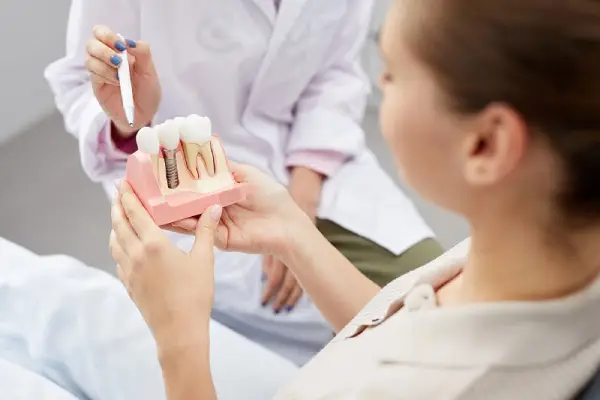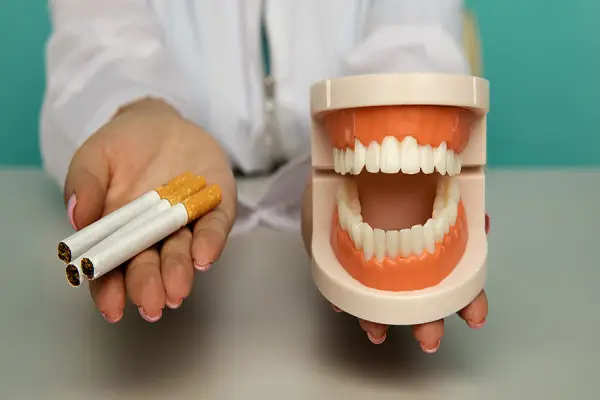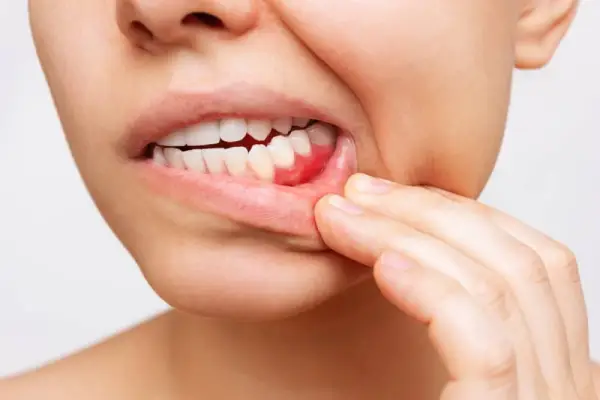Bad Habits that Cause Your Dental Implants to Fail، Although missing teeth are disappointing for everyone, dental implants give you a second chance to smile confidently once again. Dental implants are the most natural-feeling tooth replacement options since they are far secure and comfortable than other replacement methods like dentures. Patients referring to dental clinics for implant surgery regret why they wasted their time and didn’t get a dental implant earlier.
Beyond all advantages of dental implants, they need to be cared for properly to be long-lasting. Dentist @ False Creek has employed the most professional cosmetic dentists in Vancouver to deliver dental implants with the highest success rate. However, patients should consider quitting the habits that cause a dental implant failure.
Bad Habits that Cause Your Dental Implants to Fail
Implant misalignment, Infection, Irradiated bone, Poor oral hygiene, Smoking, Medical conditions, Poor implants, Periodontal disease, Bruxism, Allergic reaction, Nerve damage, Failed osseointegration, Osteoporosis, Poor impressions, Insufficient jawbone, Body rejection and allergic reaction, Diabetes, Experienced surgeon, Failure to follow dentists instructions, Implant rejection, Pharmaceutical drug, Micromovement, Overloading dental implants, Trauma, Here are the habits that cause your dental implant surgery not to be successful:
Smoking
When it comes to the bad habits that cause dental implant failure, smoking tops the list. Smoking slows down the healing process after dental implant surgery by reducing the blood flow to the gums. Besides, bone grafting is typically required for patients with insufficient bone density. Smoking interrupts the healing process after bone grafting surgery to a significant extent. As a result, you must give up on smoking prior to getting dental implants, or you will face the failure of the surgery.
Biting Down on Hard Objects
It is necessary to treat your dental implants just like your natural teeth. You must use them for eating, not for biting your fingernails or opening a bottle of soda! Excessive pressure on dental implants shortens their lifespan. For instance, chewing hard objects such as ice is not wise when you have a set of implanted teeth in your mouth. This bad habit can also harm your dental bridges or dentures placed on the dental implant.
Over Consumption of Sugar
Yes! The amount of sugar you eat directly impacts your dental and overall health. Harmful bacteria in your mouth feed on sugar. They lead to various oral diseases, especially when you don’t have good oral hygiene. Diseases such as periodontitis result in dental implant failure. Cutting down on sugar consumption not only help you have successful implant surgery, but it also will keep your body healthy.
Oral Hygiene
You may have lost some of your teeth, but brushing and flossing are still of the essence. By brushing, you can remove food particles and harmful bacteria from your teeth. Brushing is also the best way to prevent bad breath, gum disease, and, most importantly, dental implants failure.
Dental implants, like your natural teeth, require proper care and attention to function. So, you should continue your oral Wellness care routines after getting dental implants too.
Postponing Your Dental Appointment
Even if you have lost all your teeth and require All-on-4 dental implants, you still need to visit your dentist regularly. The dentist checks your jawbone condition and oral health to prevent any further complications. Regular dental visits should also continue after getting dental implants to avoid obstacles with your new set of teeth.
Bruxism
Bruxism, the involuntary clenching or grinding of teeth, can put excessive stress on your implants, potentially causing them to loosen or fracture. If you suspect you grind your teeth, talk to your dentist about wearing a nightguard to protect your implants and natural teeth.
Using Implants as Tools
Dental implants are meant for chewing food, not opening bottles, cracking nuts, or chewing on hard objects. These activities can cause chips, cracks, or even dislodge the implant.
Ignoring Warning Signs
Early signs of implant problems like pain, swelling, bleeding, or loose implants should never be ignored. Prompt attention from your dentist can help address the issue before it escalates and potentially jeopardizes the implant.
Ignoring Dietary Restrictions
Your dentist may advise you to avoid certain foods immediately after implant surgery to allow for proper healing. Ignoring these restrictions can hinder the healing process and increase the risk of complications.
Failure to follow dentists instructions
Following your dentist’s post-surgical instructions diligently is crucial for optimal healing and reducing the risk of complications. This may include taking prescribed medications, using specific cleaning aids, and adhering to dietary restrictions.
By being mindful of these bad habits and prioritizing good oral hygiene and regular dental care, you can maximize the lifespan and success of your dental implants and enjoy a beautiful, healthy smile for years to come.
Remember, consulting your dentist for personalized advice and addressing any concerns is always the best course of action.
Conclusion
In this article we talk about Bad Habits that Cause Your Dental Implants to Fail. Dental implants offer a fantastic solution for missing teeth, but remember, they require commitment and care just like your natural teeth.
By avoiding these harmful habits and prioritizing good oral hygiene, regular checkups, and following your dentist’s instructions, you can ensure the long-term success and health of your implants.
A beautiful, healthy smile is within reach, but it requires a mindful approach. So, ditch the bad habits, embrace healthy practices, and enjoy the confidence and functionality that healthy dental implants provide!
FAQ
What is the most common reason for implant failure?
The most common reason for dental implant failure is infection. This condition is known as peri-implantitis, which is an inflammation of the tissues surrounding the implant. It can lead to bone loss and ultimately, implant failure.
When do most dental implants fail?
Most dental implants fail within the first year of placement.
Is the dentist responsible for a failed implant?
Whether a dentist is responsible for a failed implant depends on several factors.
Why do dental implants fail years later?
Dental implants can fail years later due to peri-implantitis, bone loss, or underlying health conditions.
Why Dentist@FalseCreek?
If you are looking for a reputable dentist for tooth extraction or other dental treatments, we are exactly what you want!
- We offer comprehensive dental services to help you achieve the smile you have always wanted
- All the procedures are performed by the most professional dentists.
- We use modern technology and updating our knowledge is our priority.
- We have created a positive and friendly environment to reduce your anxiety.
- You can get your required treatment at the most affordable prices and with flexible payment plans.
Contact Us
Looking for a trusted dentist who understands your child’s dental needs? Our experienced dentists and caring staff are here to listen to your concerns patiently and provide you and your child with a wide range of specialized dental treatments and personalized attention in a stress-free, friendly, and welcoming environment. We believe that there is nothing more important than children’s health and happiness in the world!
Let’s create a shiny smile for your kid – book an appointment with Dentist@FalseCreeck today!



